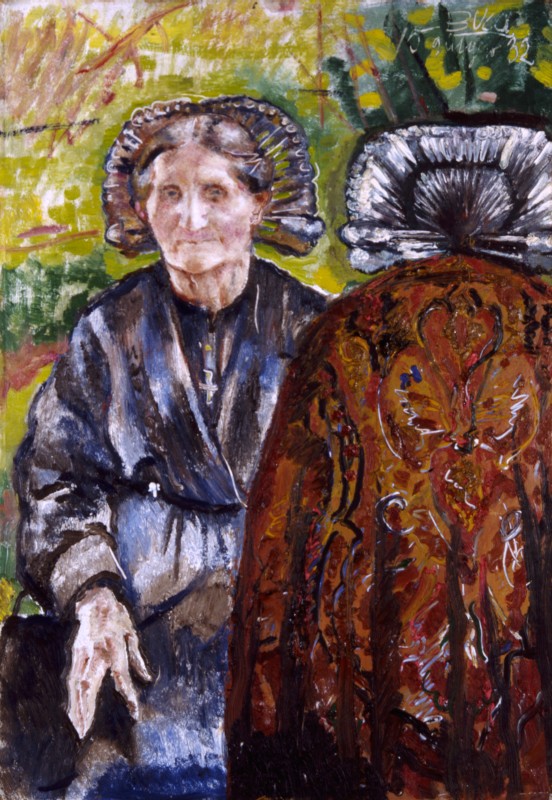Anselmo Bucci on:
[Wikipedia]
[Google]
[Amazon]

 Anselmo Bucci (25 May 1887 – 19 November 1955) was an Italian painter and printmaker.
Anselmo Bucci (25 May 1887 – 19 November 1955) was an Italian painter and printmaker.
Anselmo Bucci
online catalogu
Artgate
by

 Anselmo Bucci (25 May 1887 – 19 November 1955) was an Italian painter and printmaker.
Anselmo Bucci (25 May 1887 – 19 November 1955) was an Italian painter and printmaker.
Biography
Bucci was born inFossombrone
Fossombrone is a town and '' comune'' in the province of Pesaro e Urbino, Marche, central Italy.
History
The ancient Roman colony of ''Forum Sempronii'' took its name from Gaius Sempronius Gracchus.
Near the Furlo Pass, during the Gothic War ...
. Having attended the Brera Academy
The Accademia di Belle Arti di Brera ("academy of fine arts of Brera"), also known as the or Brera Academy, is a state-run tertiary public academy of fine arts in Milan, Italy. It shares its history, and its main building, with the Pinacoteca di ...
in Milan
Milan ( , , Lombard: ; it, Milano ) is a city in northern Italy, capital of Lombardy, and the second-most populous city proper in Italy after Rome. The city proper has a population of about 1.4 million, while its metropolitan city h ...
from 1904 to 1905, he moved to Paris
Paris () is the Capital city, capital and List of communes in France with over 20,000 inhabitants, most populous city of France, with an estimated population of 2,165,423 residents in 2019 in an area of more than 105 km² (41 sq mi), ma ...
with Leonardo Dudreville
Leonardo Dudreville (4 April 1885 – 13 January 1975) was a Venetian-born Italian painter. He was one of the founders of the ''Nuove tendenze'' as well as of '' Novecento'' Italian art movements.
Biography
His family of Belgian origin moved to M ...
in 1906. As a painter of Symbolist works with marked Fauvist
Fauvism /ˈfoʊvɪzm̩/ is the style of ''les Fauves'' (French for "the wild beasts"), a group of early 20th-century modern artists whose works emphasized painterly qualities and strong colour over the representational or realistic values retai ...
overtones, he made his debut at the Salon des Art Décoratifs in 1907 and took part in the Salon des Indépendants from 1910 on. He enlisted in the Volunteer Cyclist Battalion in 1915 and his first solo show (Milan, Famiglia Artistica, 1915) took place while he was on leave.
In 1922, he fell in with the movement for a "return to order" of the Novecento Italiano
Novecento Italiano () was an Italian artistic movement founded in Milan in 1922 to create an art based on the rhetoric of the fascism of Mussolini.
History
Novecento Italiano was founded by Anselmo Bucci (1887–1955), Leonardo Dudreville (1885 ...
in the post-war period, and took part in a joint exhibition at the Venice Biennale, first at the 12th Esposizione Internazionale d’Arte di Venezia in 1920 and then again in 1924, on which occasion one of his works was bought for the city’s gallery of modern art. One of the founding members of the Sette pittori del Novecento Italiano
Novecento Italiano () was an Italian artistic movement founded in Milan in 1922 to create an art based on the rhetoric of the fascism of Mussolini.
History
Novecento Italiano was founded by Anselmo Bucci (1887–1955), Leonardo Dudreville (1885 ...
, he took part in the group’s first show in 1926 but not the second. During the 1930s, when he divided his time between Milan and Paris, Neoclassical rigidity gave way to greater freedom in his painting. It was in 1938 that he produced the fresco ''Italian Civilization Putting an End to Slavery'' for the Palazzo di Giustizia in Milan. He died in Monza, aged 68.
References
* Antonella CrippaAnselmo Bucci
online catalogu
Artgate
by
Fondazione Cariplo
Fondazione Cariplo is a charitable foundation in Milan, Italy. It was created in December 1991 when the Amato law, Law no. 218 of 30 July 1990, came into force. Under this law, saving banks were required to separate into a not-for-profit fou ...
, 2010, CC BY-SA (source for the first revision of this article).
Other projects
{{DEFAULTSORT:Bucci, Anselmo 19th-century Italian painters Italian male painters 20th-century Italian painters Symbolist painters Brera Academy alumni People from the Province of Pesaro and Urbino 1887 births 1955 deaths 19th-century Italian male artists 20th-century Italian male artists